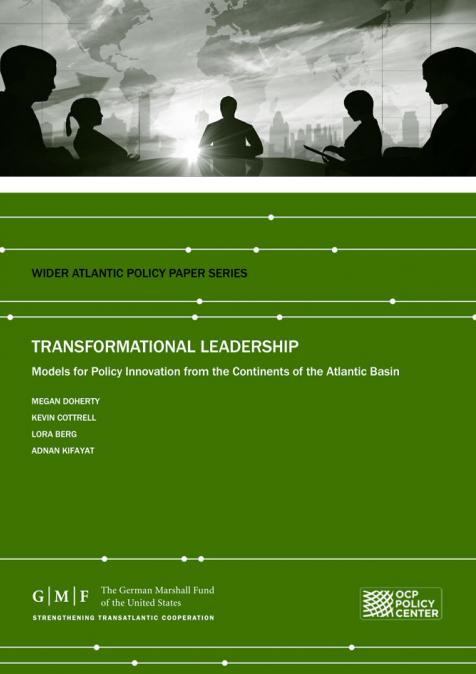Publications /
Policy Paper
Leadership must entail collaborative action with the ambition of generating political, social, or economic change at the most fundamental level. The case studies profiled here offer examples in which efforts to articulate a common vision led to transformational action. This style of transformational leadership — as opposed to those that rely on coercion or persuasion — offers leaders the greatest opportunity to find common ground despite cultural, geographical, and political differences. Utilizing this definition of transformational leadership, we examine five case studies highlighting leaders that are driving types of change that may prove instructive to those facing similar challenges. Each case study shines a spotlight on a different Atlantic continent and sector, highlighting the different types of actors that are driving innovation on the ground. From the local to the regional, from the Americas to Africa to Europe, all of these case studies offer their own sets of lessons learned. Taken together, these lessons may be distilled into instructive insights centered on the following three core civic competencies: 1) the value of seizing opportunities when presented, especially during times of crisis, tragedy, or transition; 2) the power of assembling ambitious alliances; and 3) the importance of building sustainable pipelines to ensure policies have widespread support. In the locations from around the Atlantic profiled here, leaders open to new ideas have formed coalitions of unprecedented scale and built sustainable pipelines, which together have paved a road for innovative policy solutions to be implemented. This has led, across all case studies, to the rise of greater equity and inclusion, instances of profound social and/or political change, and new periods of economic growth and stability. Leaders with the ambition to meet challenges shaping the 21st century might do well to take heed of the strategies and tactics employed in Bilbao, Detroit, Colombia, Rwanda, and Morocco.



